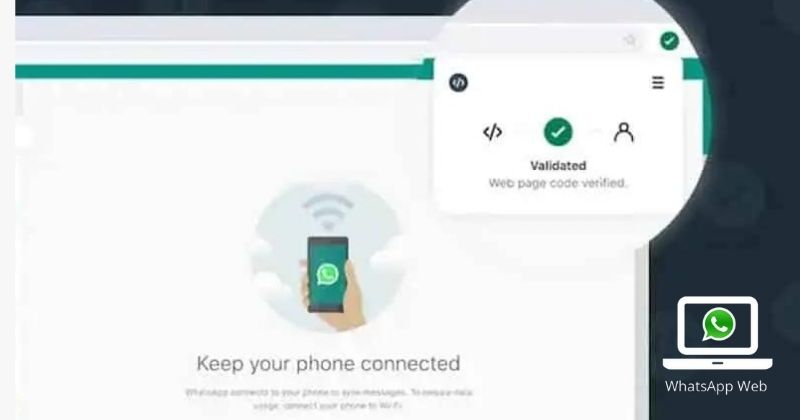The code checks whether Whatsapp web code hasn’t been “tampered or altered.” It will make sure that you don’t fall for malicious Web versions that might be a risk to your privacy. As Whatsapp web is open-source, it can be easily used by any third-party platform. According to the official blog, the extension “automatically verifies the authenticity of Whatsapp Web code that is given to your browser.
Whatsapp Rolls Out Code Verify Extension for Web Version
The Code Verify feature by Whatsapp is developed in partnership with Cloudflare. It is a web infrastructure and security company. In the blog post, Whatsapp says the Code verify gives third-party, independent, transparent verification of code given to Whatsapp Web users. According to the company’s blog, “Code Verify expands on the concept of subresource integrity, a security feature that lets web browsers verify that the resources they fetch haven’t been manipulated. Subresource integrity applies only to single files, but Code Verify checks the resources on the entire webpage. To do this at scale, and to enhance trust in the process, Code Verify partners with Cloudflare to act as a trusted third party.”
How to Use Code Verify on Whatsapp Web?
Code Verify is a web extension that can be downloaded to all browsers, including Chrome, Firefox, and Microsoft Edge. Users can download the web extension from Meta Open Source. It is said that Meta or Whatsapp both will not know when someone downloads the code verify extension. It can’t send texts or chats between two users to Cloudflare. As you install the extension, it will automatically start running when Whatsapp web is turned on. You can see its findings in the toolbar. When the code is validated, the Code Verify icon will appear green. If it is orange, then you must refresh your page, or there is an issue with another browser extension. And if it shows a red icon, then there is a possible security issue with the Whatsapp Web code.
